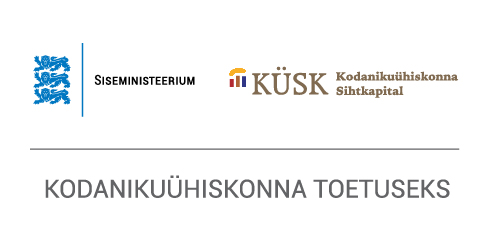The courts ruling is a result of the climate activists’ additional appeal in the beginning of this year, finding that the strategic environmetal assessment (SEA) does not explicitly exclude the negative impact of the costruction on the nearby Natura area. That means the construction may have adverse environmental effects. Kärt Vaarmari, lawyer of Estonian Environmental Law Center that represents the Fridays For Future Estonia (FFFE) in the case explains: “With the ruling, court confirmed our statement that according to the wording of the SEA report, the adverse effects on a Natura site is not excluded, which is a precondition for permitting activities that may affect such sites. At the same time, this is only one error in the environmental impact assessment procedure of the oil plant - we have pointed out several more in the original complaint. In our opinion, the whole decision to build this oil plant is unreasoned and illegal.”
The court ruling in question unnulled the earlier one that refused to provide preliminary injunctive relief and suspends the construction permit issued for the planned shale oil plant until the end of the case. That means it resolves merely the matter of initial legal protection and the litigation over legitimacy of buiding of the plant will continue. However, the construction of the oil plant cannot be started until the final court decision has been reached in this litigation.
Fridays For Future Estonia (FFFE) filed the application [2] for revocation of the construction permit and to seek preliminary injunction a year ago.
Estonian climate activists are represented in the court procedure by the Environmental Law Center.
Notes for Editors:
[1] Estonia is known for its shale oil industry, having used it as a primary energy source for decades, and ranking as one of the world’s top producers or oil shale. The national energy company Eesti Energia is proposing to build up to four new shale oil plants and one oil pre-refinery. In the end of March 2020,
the government green-lit one of the oil plants with an investment of 125m euros
. With the added production capacity, the added yearly emissions from this industry (including emissions from burning the fuel after export) would be about 2.6 m tons of CO2. For comparison, the total amount of emissions in Estonia was 18.6 m tons of CO2 equivalent in 2018. More information on shale oil, its usage and climate risks: http://www.kliimamuutused.ee/oil-shale-abc
[2] The complaint, first of its kind in Estonia, claimed that the construction permit issued for the shale oil plant is contrary to international climate and environmental agreements. Further, its full impact has not been properly evaluated. The shale oil plant, intended to be built by the state-owned energy giant Eesti Energia, hinders Estonia’s capabilities to meet its commitments under the Paris Climate Agreement and is in conflict with both the Sustainable Development Goals and the EU’s objective of achieving climate neutrality by 2050. See also the news about the current ruling by Estonian National Broadcasting.
Photos to the press-release from climate strike in Estonia Tallinn in September 2019. Author: Katre Liiv: https://drive.google.com/drive/folders/1oItNPd_twn3lo4RgPbFRwc1O3q4o56CI?usp=sharing.
Ends.
For more information, please contact:
Kärt Vaarmari, Lawyer, Estonian Environmental Law Center, kart@k6k.ee, phone + 372 527 4761
Katre Liiv, Communications Manager, Estonian Environmental Law Center, katre@k6k.ee, phone: + 372 507 6519
